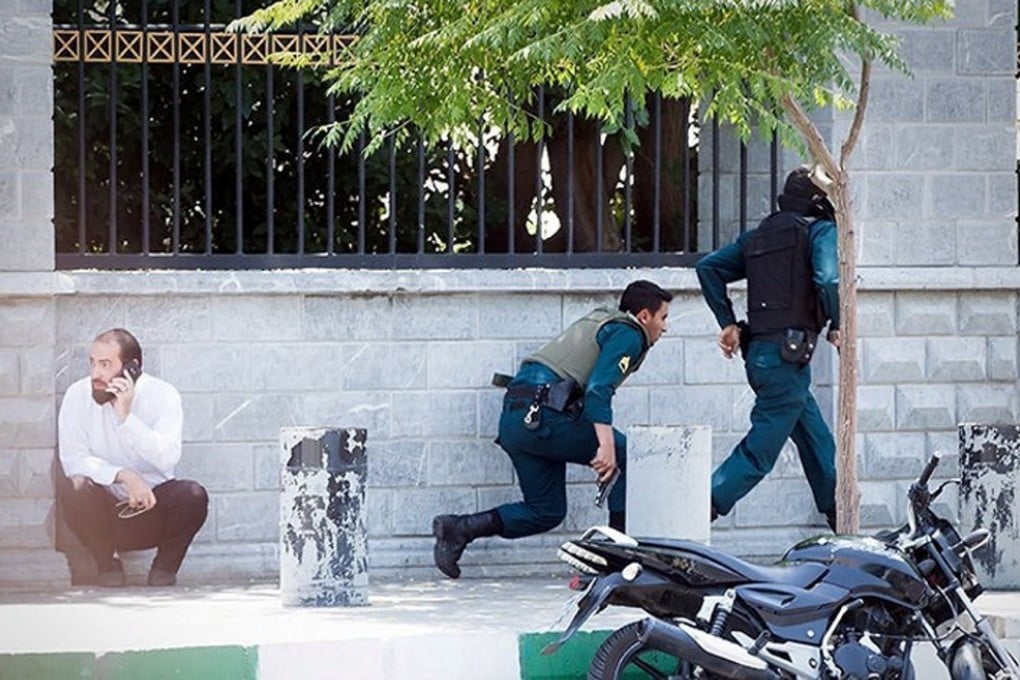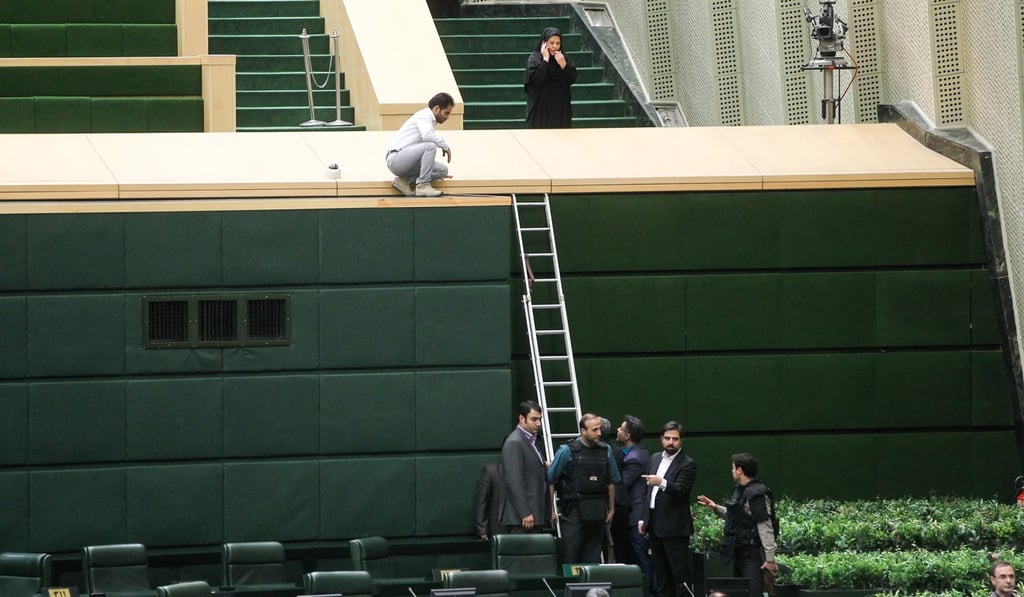Pot, kettle: Why Iran blames Saudi Arabia for Islamic State attacks
Terrorist killings at Iranian parliament and mausoleum of Ayatollah Khomeini bring into focus something Riyadh and Tehran have in common – the stoking of ethnic tensions and proxy wars they use to destabilise each other

Islamic State’s targeting of key religious and political symbols in Tehran is likely to aggravate an already escalating proxy war between Saudi Arabia and Iran.
A war of words in recent weeks between the two Middle Eastern heavyweights offered Iranian officials a rich background to justify their pinning of responsibility on the Saudis for Wednesday’s simultaneous attacks on the Iranian parliament and the mausoleum of Ayatollah Ruhollah Khomeini, the founder of the Islamic republic. At least 12 people were killed and 42 others wounded in the attacks, the first in Iran to be claimed by Islamic State (IS).

Saudi Deputy Crown Prince Mohammed bin Salman, in an interview last month with Middle East Broadcasting Corp, warned the battle with the Islamic republic would be fought “inside Iran, not in Saudi Arabia”.
Iranian Defence Minister General Hossein Dehghan responded that if Saudi Arabia engaged in “such stupidity” nothing would be “left in Saudi Arabia except Mecca and Medina”, Islam’s two holiest cities.
The irony is that Wednesday’s attacks laid bare a picture of the pot calling the kettle black, highlighting mirror images that both the Islamic republic and the kingdom would have like to have kept hidden.